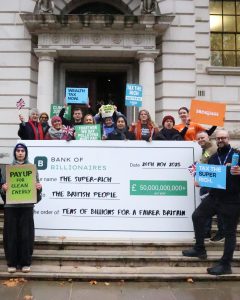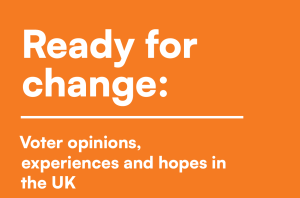
Nov 23rd, 2016
Free money in Fife?
By 38 Degrees team
This Friday, councillors in Fife will be meeting to discuss introducing a pilot Universal Basic Income (UBI) scheme. The policy was a recommendation as part of the Fairer Fife Commission, and supporters argue that it will help to reduce poverty.
So what is the Universal Basic Income?
The details vary depending on who you ask, but the idea is pretty simple: the state gives everybody a set amount of money a month, whether or not they are in work or not. There are lots of arguments for and against a Universal Basic Income (and this isn’t meant to be a definitive list of them all!), but some of the main ones are below:
Three common arguments in favour:
1) It will promote equality
Supporters argue that giving everyone a guaranteed monthly income will go a long way to reducing social inequality by reducing the pay gap, for example, between men and women. It would also help with the issue of unpaid labour – that’s work such as childcare, housework and caring for sick family members, all of which is disproportionately done by women.
2) It will reduce the burden on the welfare system
Administering the welfare system comes with a huge cost to the taxpayer, and navigating it can be inaccessible and painful for claimants. UBI would simplify the process, making it much cheaper along the way, and mean that fewer people would have to face the threat of sanctions.
3) It will promote education and entrepreneurship
By freeing people up financially, supporters argue that UBI would allow and encourage more people to pursue educational and training opportunities they otherwise couldn’t afford or to take greater risks with business start-ups and entrepreneurship. This could have enormous economic benefits.
On the flipside, there are some criticisms of this idea. Here are just three common arguments against:
1) It’s just an excuse to cut benefits
Some critics worry that the introduction of UBI could be used as an excuse to cut the overall amount of benefits that individuals receive. They argue that the policy can’t be described as progressive if it gives comfortable, well-off people money at the expense of people who need it to survive.
2) It will just lead to inflation
Some also argue that UBI can only ever be part of the puzzle. For example, without limits on increases in rent or energy prices, the introduction of UBI could just lead to landlords and companies increasing prices. That would mean that money that was meant to be going to individuals just ended up in the pockets of big companies.
3) It will require an increase in tax to work
In order to fund UBI – and, crucially, to keep the policy progressive – it would be necessary to radically change the tax system by placing the burden on those who are most able to bare it. Some critics don’t support these sorts of changes, while others argue that while they would be desirable they are not realistic under the current political climate.
There’s are just a few of the common arguments on both sides. What do you think? Is Universal Basic Income a good idea? Comment below to let us know.

















